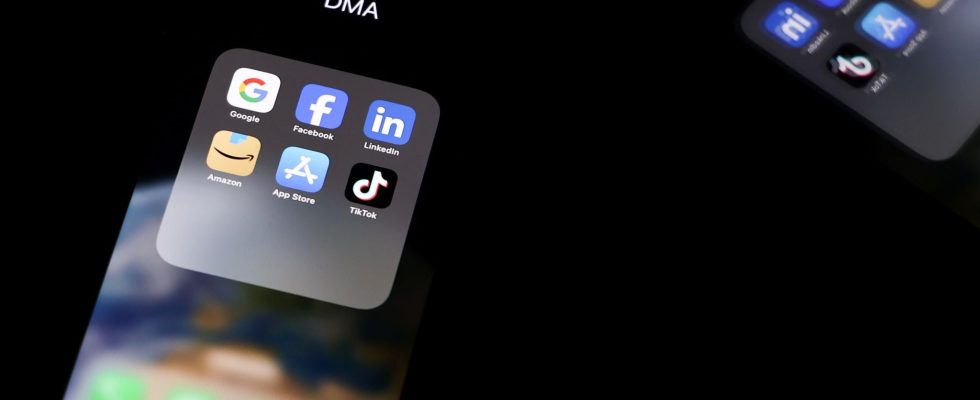Apple saw its sales of iPhone, iPad and accessories decline at the start of the year, but its services saved the day for the technology giant, which was also eagerly awaited on the artificial intelligence (AI) front. generative. From January to March, the Californian group achieved a turnover of 90.75 billion dollars, including 23.6 billion in net profits, two results down year-on-year, but less than the market feared.
In the absence of the Apple brand’s usual flamboyant results, investors appreciated its announcement on Thursday, May 2, of an unprecedented share buyback program of $110 billion. Apple’s stock gained more than 6% during electronic trading after the close of the New York Stock Exchange. Sales of its flagship product, the iPhone, generated less than $46 billion in revenue in the second quarter of its staggered fiscal year, down 10% year-on-year, according to its earnings release released Thursday. “Lower demand for the iPhone in China has significantly reduced revenue,” noted Emarketer analyst Jacob Bourne.
Apple had doubled Samsung in 2023 in smartphone sales, but the Californian group once again ceded the throne to the South Korean in the first quarter of 2024, according to the specialized research firm IDC, while the Chinese brands Xiaomi and Transsion recorded strong growth, in a context of recovery in this market. Tim Cook, Apple’s boss, insisted during a conference with analysts on the unfavorable comparison with early 2023, when his group had sold a lot of smartphones after resolving problems in the supply chain.
Focus on the sale of services
In addition, “the iPhone continues to grow in certain markets, including China,” he assured. “According to Kantar, the two best-selling smartphones in Chinese cities during the past quarter were the iPhone 15 and the iPhone 15 Pro Max.” On the other hand, he welcomed a “historic record” for services, which include the App Store application store, music and video streaming platforms (Apple TV +), as well as remote data storage (cloud). The activity achieved a turnover of nearly $24 billion, and now represents more than 26% of the company’s revenues.
“Over the long term, I think Apple’s evolution toward a services-based business model is a solid approach to offsetting its reliance on iPhone sales,” said Forrester analyst Thomas Husson. . “From a business point of view, it is clear that neither the new products launched in the first quarter (e.g. the Vision Pro headset and the new MacBook Air) nor the expected refresh of the ranges of other devices such as tablets and styluses “will have an impact on the company’s results in the near future,” he added.
Questions about AI
Like its neighbors and competitors in the American West, Apple has received numerous questions from analysts on its strategy in terms of generative AI (production of content on a simple query in everyday language). But unlike other tech giants, Google and Microsoft in the lead, which are multiplying announcements of new products and AI assistants, the iPhone manufacturer has remained vague, dangling announcements at its next conference for developers , in June.
“I don’t want to get ahead of ourselves with our announcements. I would just say that we see generative AI as a very important opportunity for most of our devices. And we think we have advantages that set us apart in this area,” Tim said. Cook. “Apple’s determination to stay away from the AI hype is likely to crumble as the company begins to become quite isolated,” said Forrester’s Dipanjan Chatterjee.
The apple brand had a start to the year marked by layoffs, legal proceedings and controversies. She fired more than 600 people in California at the end of March. The full extent of the social plan is not known. Also in March, the American government took Apple to court for monopolistic practices linked to the iPhone and the constraints imposed by the group on application developers.
